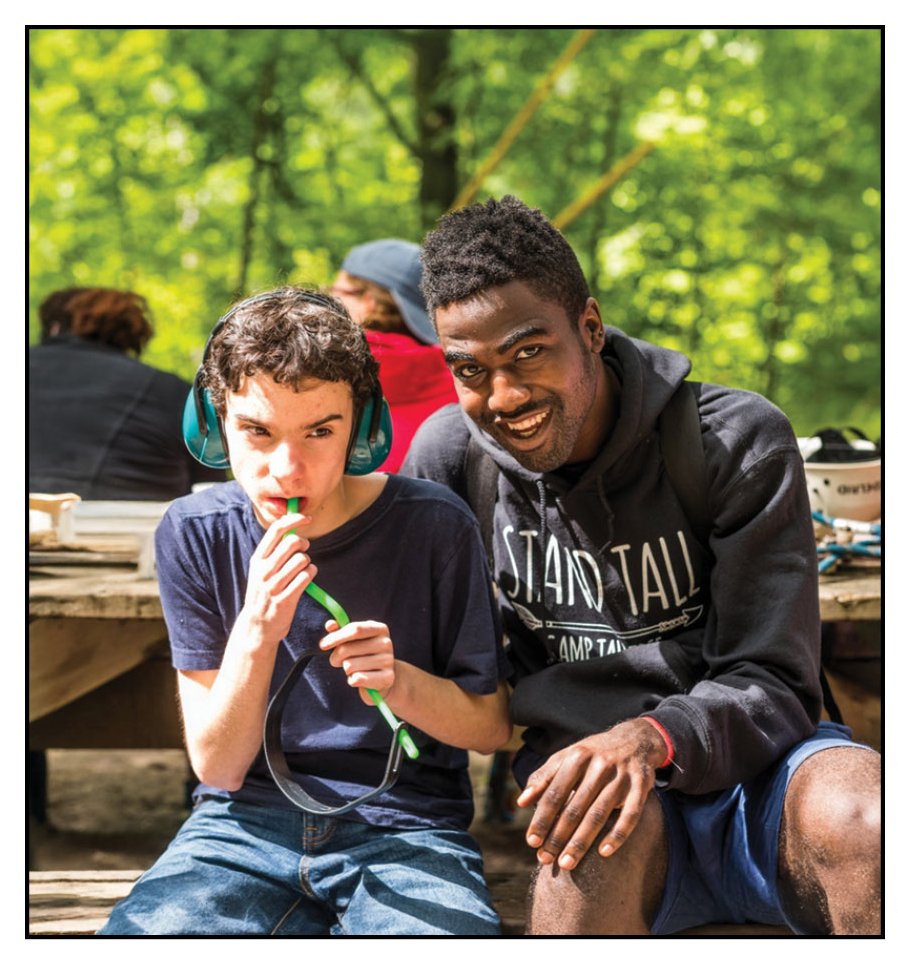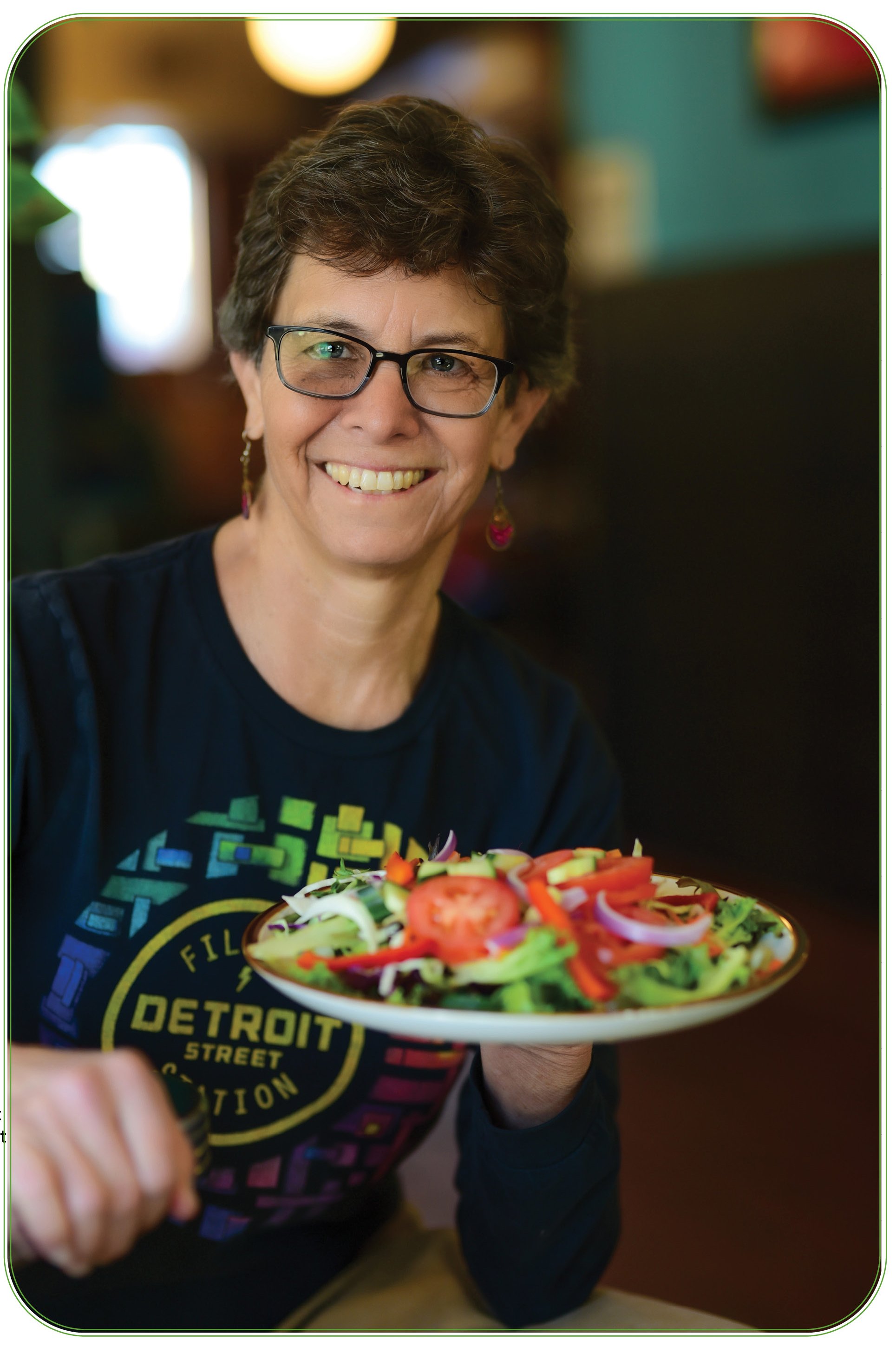By Madeline Strong Diehl
It’s likely that most Americans will remember the year 2020 as one of the worst in their lifetimes. But if we take a step back, we might find that the year also brought many inspiring reminders of the capacity of the human spirit to overcome adversity and lend comfort to strangers.
Italy was the first European country to suffer from a major outbreak of Covid-19 last spring, and we were stirred by images of Italians in lockdown singing to each other from their balconies.
Closer to home, people in Ann Arbor and around Washtenaw County (as well as in many other places) created “porch pantries” stocked with food and supplies for strangers to take. Neighbors often helped to replenish the “pantries,” so they were rarely empty.
That was just one of the most visible ways people were helping strangers in our community without expecting or wanting anything in return. Last March, a low-profile, loosely organized group of people started the Washtenaw County Mutual Aid + Resources Facebook page, which enables members to post their needs so that other members can help by donating money and/or other resources.The group does not advertise itself, so it only gained traction by word-of-mouth. Now it is gaining critical mass—it currently has about six thousand members, and sometimes dozens more join every week. Proponents of the mutual aid movement want people to commit to long-lasting social change, so people aren’t allowed to join and post on the site unless and until they pass a mini quiz that demonstrates they have a basic understanding of mutual aid. (An article is posted on the page for background.)
“I only found out about it because several friends started talking about it last spring,” said a woman who asked that I not use her real name. (For purposes of this article, I will call her Susan.) Susan’s involvement started simply by dropping off diapers and wipes on a porch for a stranger who had requested them on the FB site. She also put twenty dollars in an envelope with a note that said: “You can do this!!!”
When the woman let people on FB know that her needs had been met, she also tagged Susan and said: “You’ll never know how much your note meant to me!”
Read related article: Random Acts of Kindness-- The Great Casserole Challenge
Now Susan and the woman stay in close contact, and Susan is quick to tell me that the woman has grown so much that she now takes a leadership role in finding help for others. “She’s been in the same place that they are, so she has a lot of knowledge about how to help them and work the system,” explained Susan. “She also provides people with a lot of inspiration, faith, and hope because they know that if she made it out of such a difficult crisis, they can, too.”
This dynamic—that both the giver and the receiver are given the opportunity to grow and benefit through their interaction—is at the heart of the mutual aid movement. Its informal motto is “solidarity, not charity,” and Susan says she didn’t really completely understand that concept until she had been participating for months. Now she financially supports two families who otherwise would be homeless.
“I’m not just giving people money to help them—I’m learning from them and growing. I’ve always considered myself an activist, but after doing this a while, I’ve learned way more about structural inequality and poverty. I knew there was poverty in Washtenaw County—I read the reports. But that’s very abstract compared to reading real people’s stories on Facebook. Now I really understand how privileged I am.”
At one point it dawned on Susan that she was essentially profiting off the pandemic while others were experiencing extreme stress from illness, lost jobs, and strained relationships.
“I am lucky to be part of a family that has a pension and a stock portfolio that is worth way more than it was a year ago,” said Susan. “I have a job that I can easily do from home, and my husband and I share childcare, which saves us a lot of money. I no longer have to commute to Detroit, which saves on gas and wear and tear on the car. And I received the same stimulus check that everyone else did, and the same childcare benefit. At one point I calculated that I saved about eight or nine thousand dollars since last spring, so it’s not really a sacrifice for me to pass on that savings to others who really need it.”
One of the central concepts of the movement is that we can’t wait for our elected officials to change society—we have to make the changes ourselves, and we have to start now. We also have to transform ourselves and the way we see ourselves to do that. The false storyline that all poor people bring their troubles on themselves through their actions is one of the first things that has to go. As one woman posted on the site: “My daughters don’t deserve this, but I’ve been doing the best I can.”
If you go to the site, you’ll find many examples of how the concepts of “giving” and “receiving” are really two sides of the same coin. The following notice appeared on the site in late February: “Where can a local restaurant donate 60qts (sic.) of butternut squash soup ASAP? It was made on Thursday and should be consumed soon.” (The soup had a taker within minutes.) Obviously in a community where more and more people are falling into poverty every day, it would feel awful to let sixty quarts of delicious soup to go to waste. So, the gift of the soup benefits the “giver” as much as the “receiver.”
The practice of “mutual aid” is not new—it has a long history going back hundreds of years, usually organized by churches. What is new is that, through a modern technology like FB, communication and connection is made possible between people who in the past have been separated by race, class, and ethnicity. It may even come to pass that, when we look back at this moment in our collective history, we’ll discover that our society met the challenges of the pandemic and was able to transform itself due in large part to the power of people just telling their life stories to others who felt honored to be entrusted with them.



































































































































































































The birds are exuberant this morning. By the dozens, tufted titmice, rose-breasted grosbeaks, cardinals, gold finches, black capped chickadees, blue jays, mourning doves, and an oriole sing and flit from branch to nearby branch in a riotous clamor just outside the living room windows. One of the delights of spring is the way one can luxuriate in the bookends of the day. Morning unfolds slowly as the light gathers until the sun crests the horizon, and then all at once the day bursts open like a flower. Evening lingers before the day finishes. It is at these times that I especially enjoy watching the birds come and go.